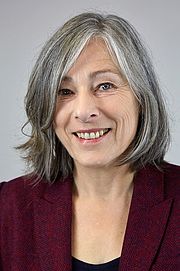Erasmus+ Internship
With a monthly grant, Erasmus+ offers students the opportunity to gain practical experience abroad during an internship. Here they can learn about other employment markets whilst enhancing their key qualifications, their cooperative and communication skills.
Benefits
- EU internship agreement between higher education institution, company and student;
- During their internship, students have the support of a contact person in both the home higher education institution and the company;
- Mobility grant
- Support during the preparatory phase (cultural, language, organisation);
- Extra funding for students with children;
- Extra funding for students with disabilities.
- Enrolment as a student at Hochschule Geisenheim University;
- Internship placement in one of the 27 EU member states, Macedonia, Liechtenstein, Iceland, Norway and Turkey;
- Internship period of minimum 2 and maximum 12 months (multiple periods also possible, up to a maximum funding period of 12 months per study cycle, i.e. Bachelor, Master and PhD: e.g. 6 months’ study in Italy, 4 month internship in France and 2 month internship in Hungary);
- Full-time internship
- Internship must be professionally and vocationally relevant to your degree course;
- Funding is not available for internships in European institutions and organisations, national diplomatic missions or organisations administering EU programs;
- It is expected that the same conditions will apply for graduate internships, whereby here, applications must be submitted during the final university semester;
- You may not take advantage of another EU scholarship in addition to the ERASMUS scholarship;
- If you are a non-European citizen, please find out in a timely manner whether you need a work permit in the country of the internship.
The so-called Mobility Grant is part of the Erasmus+ internship abroad program. It is intended to help cover the additional costs incurred when living abroad. The monthly grant payments depend on the country in which you complete your internship abroad.
- Group 1 (€750/month): Belgium, Denmark, Finland, France, Republic of Ireland, Iceland, Italy, Liechtenstein, Luxembourg, Netherlands, Norway, Austria, Sweden;
Partner countries from regions 13 (Andorra, Monaco, San Marino, Vatican State) and 14 (Faroe Islands, Switzerland, United Kingdom): please submit an application - funding cannot be guaranteed and is only possible if the special budget is still available (as of 27.02.2025). - Group 2 (€690/month): Estonia, Greece, Latvia, Malta, Portugal, Slovakia, Slovenia, Spain, Czech Republic, Cyprus;
Bulgaria, Croatia, Lithuania, Poland, Romania, Serbia, North-Macedonia, Turkey, Hungary.
Please note that Erasmus funding distinguishes between funding period and period of stay.
Internships are financially supported up to a total duration of 4 months, no scholarship is paid for the remaining period of stay.
Your application for an Erasmus + scholarship is complete upon timely submission of:
- application form
- confirmation of recognition (internship coordinator)
- commitment of the internship company
- CV
- motivation letter
- proof of enrollment
- if necessary: DAAD - Language certificate
Please submit your application 4 weeks before the planned start of your internship at the International Office, we will conclude the contracts (learning agreement and grant agreement) before starting your internship. You can also submit the learning agreement with your application to the International Office.
You will receive by e-mail:
- access to a language test / online language course (if the working language is not German)
- the grant contract
Top-up for Green Travel
Participants who need more time to travel due to the use of sustainable means of transport can receive up to six additional travel days as part of individual funding to cover accommodation costs for the travel time before and after the mobility in accordance with the guidelines for individual funding.
The €250 additional grant can only be awarded once, even if several criteria apply to you:
Special funding for students with children
Students who take their child or children abroad with them can also receive an additional €250 per month. The prerequisite is that the child or children is/are taken along during the entire stay. The allowance is €250 per month per family, regardless of the number of children. The application is also possible if a caregiver (partner) travels along.
Special funding for students with chronic illnesses or special needs
If you have a chonic illness (proven by a medical certificate confirming the additional need abroad due to your illness) or have a disability (proven level of disability: 20 % or higher), you can apply for additional funding. Depending on your additional financial need, please apply for a fixed top-up or submit a separate application (a so-called long-term application).
1. Fixed top-up
Students with impairments or special needs will receive a fixed top-up of €250/month in addition to their Erasmus grant, irrespective of their chosen host country. A separate application is not required. Simply inform the International Office that you are eligible for special funding due to a medical condition and submit proof of your level of disability.
2. Individual application
Students with a level of disability of 20 % or more who have received a confirmation from their home university for an Erasmus-funded stay abroad may apply for special funding to cover the actual extra costs during their stay abroad (up to €15,000 per semester).
The extra funding will be calculated on the basis of your specific needs and paid in addition to the regular Erasmus grant. Please note that only the following additional costs can be taken into account:
a.) costs that are not covered by other national sources (integration offices, health insurance providers, social welfare, student unions)
b.) costs that will incur during your stay abroad, such as airfares, costs for barrier-free accommodation or for accompanying persons.
Since you have to prove the difference between the costs at home and abroad, please allow sufficient time for the application.
Please submit your application to the International Office at least two month before your departure. Your application will then be forwarded to the German Academic Exchange Service (DAAD). Unfortunately, any applications submitted after the start of the study period abroad cannot be considered.
The special funds are calculated on the basis of the real additional costs incurred and must be supported by appropriate attachments (internet research, correspondence with national offices, etc.) If you want to apply, please contact the International Office first for assistance with the application process. If you apply for services that are excluded from funding (e.g. acquisition of new technical equipment), the DAAD reserves the right to reduce the application amount accordingly (after consultation with your home university).
Special funding for students from a non-academic background
Studies have shown that students whose parents have not already studied themselves are less likely to consider a stay abroad. With additional funding, the Erasmus program aims to encourage these students to take the step abroad. In this case, students whose parents or caregivers do not have a degree from a university or university of applied sciences are considered first-time academics. Here, too, €250 are available in addition to the regular monthly Erasmus grant.
A degree from a university-like university of cooperative education is considered an academic degree. Likewise, courses of study completed abroad count as academic degrees, even if they are not recognized in Germany. A master craftsman's diploma is not considered an academic degree.
Special funding for working students
Students who earn a significant amount of their own living may be reluctant to embark on a stay abroad, as they are often unable to continue working while abroad and earnings are lost. To alleviate this problem, there is now a top-up amount of €250 if the following criteria apply:
- employment subject to social insurance
- with net earnings of more than €450 and less than €850 in any month
- continuously employed for at least 10 months during the year prior to the stay abroad
Erasmus+ helps students and interns/trainees develop their language skills. Language development is assessed and supported using language tests (before and after the mobility period) and tutored language courses.
These languages are Bulgarian, Croatian, Czech, Danish, Dutch, English, Finnish, French, German, Greek, Hungarian, Italian, Polish, Portuguese, Romanian, Slovak, Spanish and Swedish. Over the next few years this service will be expanded to include all the languages of the European Union.The language tests are designed to help make your mobility period a success – they document the development of language skills. They are neither selective, nor are they a requirement for a receiving a grant. The system is entirely electronic: students and interns/trainees receive an email with login details for the online linguistic support platform where they can take tests and complete language courses.




